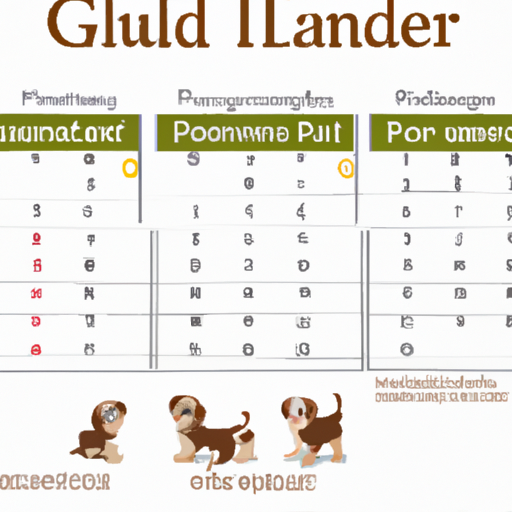In the journey of caring for your furry friend, you’ve probably found yourself asking “When do puppies become dogs?” Understanding this transition is crucial in providing the optimal care for your pet. In this comprehensive guide, we will delve into this topic in detail.
1. Understanding Physical Maturity in Puppies
Physical maturity is the first noticeable sign of the puppy-to-dog transition. However, the rate at which this happens varies among different breeds.
Small Breeds
- Generally mature faster
- May reach adulthood around 9 to 12 months
Medium Breeds
- Slightly slower to mature
- Typically reach adulthood between 12 to 16 months
Large Breeds
- Slowest to mature
- May not fully mature until around 2 years of age
Here is a table to illustrate this:
| Breed Size | Age of Adulthood |
|---|---|
| Small | 9-12 months |
| Medium | 12-16 months |
| Large | Up to 2 years |
2. Behavioral Changes
Behavioral changes are another key indicator of your puppy becoming a dog. As your puppy ages, they’ll likely display less hyperactivity and more calmness, much like an adult dog.
- Less Playfulness: Your puppy might start to be less eager to play and prefer resting or observing their surroundings.
- More Independence: They may also show more independence, preferring to explore on their own rather than always sticking by your side.
- Training Progress: As your puppy matures, their attention span will increase, making them more responsive to training.
3. Sexual Maturity
Sexual maturity often coincides with physical maturity. This is another milestone in your puppy’s journey to becoming a dog.
- Females: A female puppy will have her first heat cycle, which generally occurs between six and nine months.
- Males: Male puppies will start showing interest in females, usually around six months of age.
However, just because a puppy reaches sexual maturity doesn’t mean they’re fully grown.
4. Emotional Development
Emotional development is a bit more subjective but just as important in your puppy’s transition to adulthood.
- Fear Phases: Puppies usually go through two fear phases, one at around 8-11 weeks and another at about 6-14 months. These phases are normal and a sign that your puppy is maturing.
- Patience: Adult dogs have more patience than puppies. If you notice your puppy starting to display this trait, it’s a good sign they’re maturing.
5. Health Considerations
As your puppy matures into a dog, their health needs will also change.
- Diet Changes: Puppies require a diet rich in nutrients for growth. As they transition to adulthood, their diet should shift to maintain a healthy weight.
- Vaccinations: Puppies usually complete their vaccination series around 16 weeks old. After this, they’ll only need annual boosters.
- Dental Care: Puppy teeth are replaced with adult teeth around four to seven months of age. Regular dental care is important from this point forward.
Frequently Asked Questions
When should I switch from puppy food to adult food?
This depends on the breed size. Small breeds can switch around 9-12 months, medium breeds at 12-16 months, and large breeds at around 18-24 months.
How will my puppy’s behavior change as they grow?
As your puppy matures, they may become less hyperactive, more independent, and more responsive to training.
When should I neuter/spay my puppy?
The best time to neuter or spay your puppy is usually before they reach sexual maturity. Consult with your vet to determine the best time for your specific breed.
How can I tell if my puppy is emotionally maturing?
Emotional maturity can be observed through decreased fear reactions, increased independence, and an increased ability to handle stress.
By understanding these key aspects of your puppy’s development, you can ensure they transition to adulthood in a healthy and happy manner. Remember, each puppy is unique and may reach these milestones at different times. Always consult with your vet if you have any concerns about your puppy’s development.



